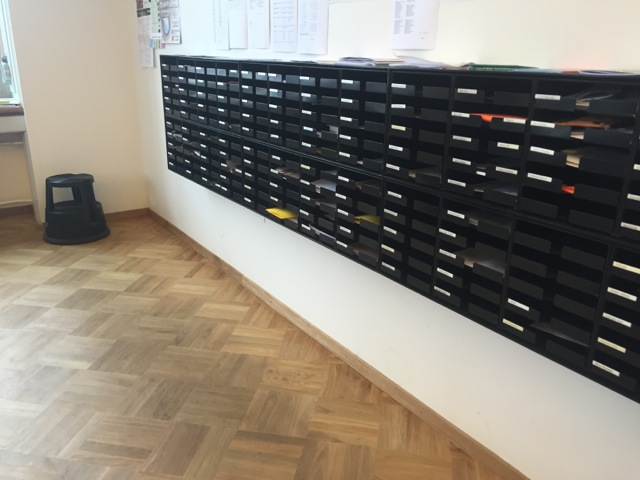SA4QE - The Slickman A4 Quotation Event
I exist, said the mirror.
What about me? said Kleinzeit.
Not my problem, said the mirror.
From Kleinzeit (Novel, 1974) | Read more
When one is a child, when one is young, when one has not yet reached the age of recognition, one thinks that the world is strong, that the strength of God is endless and unchanging. But after the thing has happened--whatever that thing might be--that brings recognition, then one knows irrevocably how very fragile is the world, how very, very fragile; it is like one of those ideas that one has in dreams: so clear and so self-explaining are they that we make no special effort to remember. Then of course they vanish as we wake and there is nothing there but the awareness that something very clear has altogether vanished.
“I’m always looking for the Hows and the Whys and the Whats,” said Muskrat. “That is why I speak as I do. You’ve heard of Muskrat’s Much-in-Little, of course?”
“No,” said the child. “What is it?”
Muskrat stopped, cleared his throat, ruffled his fur, drew himself up, and said in ringing tones, “Why times How equals What.” He paused to let the words take effect.
“That’s Muskrat’s Much-in-Little,” he said. He ruffled his fur again and slapped the ice with his tail. “Why times How equals What,” he repeated. “Strikes you all of a heap the first time you hear it, doesn’t it? Pretty well covers everything! I’m a little surprised that you haven’t heard of it before, I must say. It caused a good deal of comment both over and under the pond, and almost everyone agreed that the ripples from it were ever-widening.”
February 4 is Russell Hoban’s birthday. This yellow paper was placed here as part of an annual world-wide celebration of Hoban and his work. Your finding it and reading it makes you part of the celebration, too.
An ordinary mirror is silvered at the back but the window of a night train has darkness behind the glass. My face and the faces of the other travellers were now mirrored on this darkness in a succession of stillnesses. Consider this, said the darkness: any motion at any speed is a succession of stillnesses; any section through an action will show just such a plane of stillness as this dark window in which your seeking face is mirrored. And in each plane of stillness is the moment of clarity that makes you responsible for what you do.
Consider this, said the train wheels, repeating the message tirelessly moment after moment on the miles of cold iron that lay shining in the dark that led to Harwich and repeating face on face the faces reflected in the windows.
'We make fiction because we are fiction ... It lived us into being and it lives us still.'
I don't know what I am now. A whispering out of the dust. Dried blood on a sword and the sword has crumbled into rust and the wind has blown the rust away but still I am, still I am of the world, still I have something to say, how could it be otherwise, nothing comes to an end, the action never stops, it only changes, the ringing of the steel is sung in the stillness of the stone.
At South Kensington I rose from the depths, escalated to the upper world, passed through the arcade and the queue at the 14 bus stop, crossed between the cars and walked up Exhibition Road where soft ice-cream and hot dogs sweltered and coachloads of emptiness waited for their children to return. The sunlight, crazed with detail, explored every wrinkle, whisker, pore and pimple of tourists consuming Coca- Cola, mineral water, coffee, tea, hot dogs, soft ice-cream, exhaust fumes, and culture.
The sunlight explored me as well as my footsteps joined those of generations of children, mums, dads, teachers and others all the way back to the heavy tread of Roman legions marching with their standards and centurions up Exhibition Road to the Victoria and Albert, the Natural History, and the Science Museum thirsting for dinosaurs, volcanoes, Indian bronzes, William Morris, and steam locomotives. Not only was I prepared to have empty spaces in me filled with wonders, I was vaguely excited and expectant, as if the sluggish air were alive with possibilities.
“What are World Songs?”
“My father, Go Anywhere, told me about them,” said John, “the same as his father, Whatever Works, told him. The world is made up of ideas that live in the Mind of Things but before the idea comes the song. In these songs are such things as the taste of starlight on the tongue, the colors of the running of the wolf, the sound of the raven’s blackness, the voices of blue shadows on the snow, the never-stopping stillness of sea-smoothed stones, and the memory of ancient rains that filled the oceans. Without those songs there would be no world.”
“I’ve never heard those songs,” said No Problem.
“You’ve heard them but you don’t remember them. These songs are heard only by children in the belly — that’s why they come out into the world — the songs are so powerful and enticing. Once the children have the actual world in front of them they forget the songs, it would be too sad to remember them — the children would die of sadness because the world has so many bad things in it that aren’t in the songs, only soonchildren hear these songs, no one else.”
Russell Hoban, Soonchild, WHAT SOONCHILD TOLD JOHN, page 23-23, Candlewick Press (2012)
From Soonchild (Novel, 2012) | Read more


